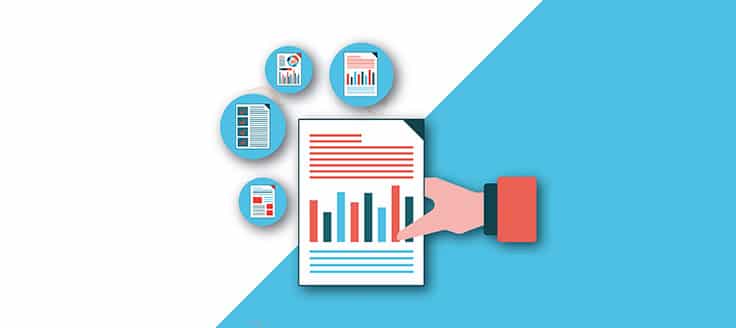Your Equifax business credit report provides a snapshot of your company’s financial well being. Like a personal credit report, potential business lenders may pull your Equifax report on your small business to determine your creditworthiness for financing. Getting a copy of your Equifax business credit report helps you be proactive about your business’s financial health and empowers you to make informed decisions about its future.. Here’s what to know about obtaining and interpreting your business credit report, as well as how to keep your Equifax business credit score in a healthy range.
Why Your Small Business Needs an Equifax Business Credit Report
Monitoring your small business credit can have a variety of benefits. The ability to check your small business credit history can help your organization identify weak areas, find growth opportunities and take steps to strengthen the financial health of your company. If you’re looking for a business loan, an Equifax business credit report can demonstrate why lenders might deny or approve your applications. Reviewing your entire financial picture can also help you determine which financing options are the best fit for your small business. You can make positive changes if you’re not eligible for a loan now but will need one to grow your business in the future.
How Equifax Generates Your Business Credit Report
Using third-party sources including lenders and government reports and public information, Equifax gathers this data and presents it in a single, collected credit report. The information is entered into Equifax’s databases using computer automation and manual verification. From there, millions of new records join Equifax’s data every day.
7 Equifax Business Credit Report Components
Your Equifax business credit report generally contains the following information:
- Company Profile: Basic information and data such as how to contact your business and your company name.
- Credit Summary: A quick overview of the financial health of your business and the standing of your credit accounts and accounts with suppliers.
- Public Records: Information available publicly, such as any judgments, liens, registration info from the Secretary of State and other records.
- Payment Trend and Payment Index: A chart showing the past year of payments along with a comparison to what’s typical for your industry.
- Additional Company Information: Other business owners, key data on close associates and more.
- Equifax Business Credit Risk Score: This score is designed to predict how likely your business is to go delinquent during the next year.
- Business Failure Score: This score predicts your business’s likelihood of failing and having to file for bankruptcy within the next year.
Other information can be included on your report, too, depending on how you do business and the suppliers, lenders, associates and partners your company has. The report serves to provide a detailed analysis of your business finances—as such, various information may be needed if it’s relevant to your business credit.
What’s a Good Equifax Business Credit Score?
The higher your business credit score is, the better. You have two credit scores with Equifax. The first, your Equifax Business Credit Risk Score, reflects the risk you pose to lenders. The second, your Equifax Business Failure Score, shows your company’s risk of bankruptcy within the next year. Your business credit risk score can range from 101-992. If you have a bankruptcy in your business credit history, your credit score will show a 0. Along with this score, your report provides up to 4 reason codes supporting the score Equifax gave you. The Business Failure Score can range from 1,000- 8,000, although it will report a 0 if you have a bankruptcy on file.
How to Get a Copy of Your Equifax Small Business Credit Report
You can obtain a copy of your small business credit report directly from Equifax for $99.95. You can also purchase a multi-pack for $399.95
Do’s and Don’ts of Your Equifax Credit Report
Your Equifax credit score isn’t static; it can move up and down the range, depending on your financial activities. Keep your small business’s credit in good standing with the following tips:
- Do store your credit report in a secure location.
- If you find errors, don’t assume Equifax will know. Equifax allows a business to open a dispute process to correct information on a credit report.
- Don’t get lazy with payments or begin making mistakes, even if right now your credit scores are strong and your credit history is solid.
- Don’t allow your business credit to suffer from a bad personal credit history, and vice versa. Keep your personal and business finances separate—this makes filing taxes easier and helps lenders and others see the distinction between your credit histories.
Using Other Equifax Business Credit Reports
Equifax also offers other types of reports and business credit reports on other companies. Using other Equifax services, you can obtain information to help your business with strategically advantageous information. You may use business credit reports on companies you partner with or pull a credit report on a competitor, for instance. If your business model relies on working closely with organizations that might be financially risky, it might make sense to use Equifax reports on other companies.








